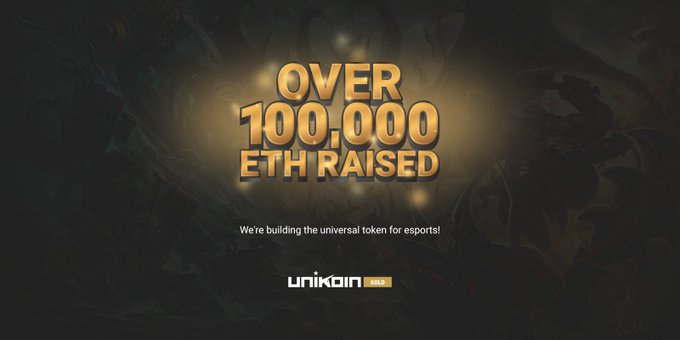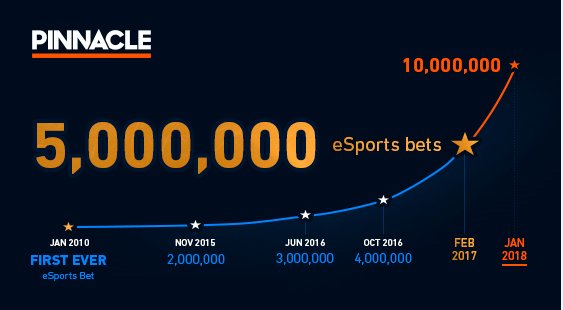
The profitability of esports for the majority of traditional sports betting operators has been called into question, with experts speculating that many offerings will struggle to attract enough of the audience to be viable.
Dozens of traditional bookmakers having added esports to their product suite in recent years with mixed results, some said during the recent Betting On Esports conference.
From traditional sports to esports
One such is
Danske Spil, the ex-monopoly operator in
Denmark which launched an
esports bettingoffering on its
Oddset site in January 2014. Asked how the operation was faring,
Kasper Nemeth, head of esports at the company, admitted that despite the evidence of growth in terms of turnover, profitability remained elusive to date.
“To be honest, we are not making that much money yet and (the chief financial officer) has been knocking at our door asking us ‘why are you not making any money, you spent a lot on marketing’,” he told the audience at London’s Olympia.
Danske Spil doesn’t break out its esports revenues from the rest of its business. In the second quarter, the company’s overall sportsbetting business achieved net gaming revenues of DK386 million ($61.8 million), slightly up on the DK379m from the first quarter.
While he admitted that the esports business was “really quite tough,” he was keen to point out that the company still stood by its strategy of attempting to capture a younger demographic through the medium and that the management understood that it needed to be “in the esports business for the future.”
“We are saying this is for the long-term,” he said. “We are right at the beginning of the market and you can see that it is a very difficult market to trade in. You need to educate a lot of people.”
Asked whether he “had a long runway,” he was optimistic. “I think we are getting there. It is growing fast. We don’t see any other area growing as fast as esports.”
Struggling with low margin
While notable traditional bookmakers turned esports experts such as
Betway were name-checked as going about the job of providing millennial-friendly esports offering in a successful fashion,
Suraj Gosal, co-founder at
Blinkpool, suggested this experience was far from common.
“I have heard across the board from the sportsbooks that have started esports betting, they have discovered that all their customers are the wise guys,” he said. “They are quite low margin and they are losing quite often.”
He said the reasons for this were twofold. “First, the esports punter being much more informed than the bookie on average, and second, the rate at which esports changes that is so fast and can make it quite difficult to price.”
‘Their odds are wrong’
Gosal’s comments were backed up by Rahul Sood, chief executive at esports-only betting operator Unikrn who suggested that up to 95 percent of traditional bookmakers who had launched with esports were losing money “because they don’t know what they are doing.”
“We are part of ESIC (the Esports Integrity Commission) and I don’t know how many times we have had calls from them saying ‘Hey, have you seen this weird betting anomaly on this map, the bookies are losing their shirts on this’ and the answer is always no, their odds are wrong,” he said.
He added: “It’s simple. They don’t understand the game, they don’t know the teams, they don’t know the audience, so they are going to continue to lose.”
Sood added that not only were these operations unprofitable, but they would also fail to retain what audience they do attract.
“They will not stay with you; you are not building an experience that resonates with them or they are comfortable with. If all you are doing is taking some odds from somebody and throwing them on your site, you will not have any retention, they will come and they will leave. That’s the way it is.”
ICOs and the future
Unikrn is this week in the
process of launching one of the largest gambling-related
initial coin offerings (ICOs), hoping to raise up to
$100 million through the sale of Unikoin Gold tokens.
Sood admitted the launch of a blockchain-based token offering had come largely at the instigation of Unikrn’s major investor, Mark Cuban. After initial skepticism he was keen on how the token might be used in a white-label sense.
“One of the intentions with Unikoin is that we’ve had bookies come to us to license our odds,” he said. “But if we white-label our platform with Unkrn odds, and allow them to license that in markets we are not it, then they can use Unikoins. We are speaking to various bookmakers about that.”
Intriguingly, he also suggested Unikrn has been approached in recent months about a potential acquisition but that they had been rejected out of hand.
“We are not interested,” he said. “Believe it or not, you can build a sustainable business in this space that doesn’t rely on other sports. And our approach of building a brand first will carry us into the future.”













